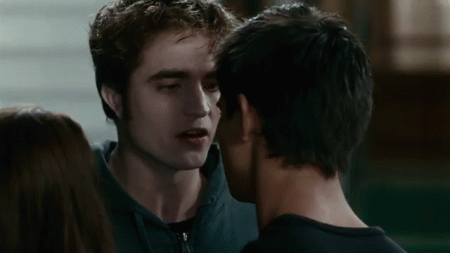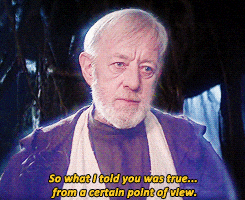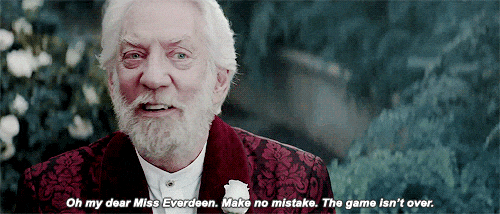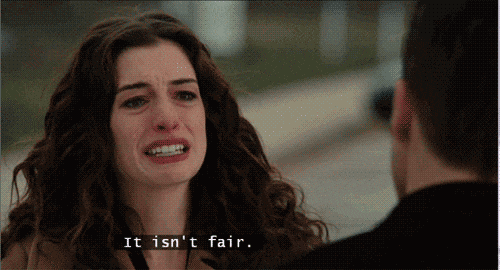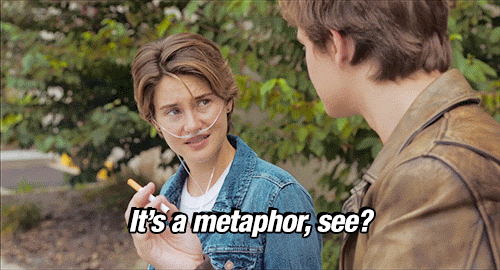Writing a story takes exhausting work and dedication. Authors must endure hours of character creation, editing, fine-tuning the plot, editing, crafting dialogue and imagery, and–not to mention–editing. It's no surprise then that authors who have devoted their lives for God-knows-how-long into a story might be tempted to employ a cliché or two. Sadly, the following clichés make me want to set the author's work ablaze and put the flames out with my tears of frustration.
1. The Obligatory Chosen One
We can't just allow our characters to rise to greatness all on their own! A prophecy must foretell their heroic destiny!
2. It Was All A Dream
You're telling me that the complex, intriguing storyline I invested so much of my time into was all a dream? I feel so betrayed.
3. Convenient Parental Absence
You couldn't figure out a creative way to put your young characters in harm's way under the watchful eye of a loving parent or legal guardian? Never fear! Why not make the father a workaholic who's always away on business trips? Or you could put the mother in a coma! Or, if you're feeling particularly jolly, go ahead and inexplicably murder a parent or two.
4. "Little Did He Know" Foreshadowing
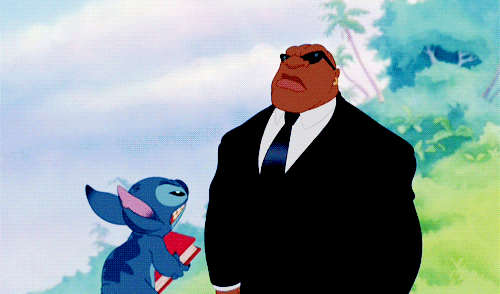
You've resolved everything, your characters are in a safe place, and then you have the audacity to end the chapter with a smug "little did he know everything was about to change"? Thanks for ruining your upcoming plot twist and making me stay up even later.
5. The Vanilla Protagonist
This archetypal protagonist is the blandest, least-interesting, conventional ice cream flavor surrounded by the infinitely more exciting Rocky Road, Mint Chocolate Chip, and Rainbow Sorbet. In an effort to be the most relatable character out of a colorful, quirky cast, the Vanilla Protagonist possesses no idiosyncrasies of their own, no compelling character flaws, and probably enjoys reading (because isn't that something most readers have in common?). And unfortunately, we're stuck in their head. I don't know about you, but I read to experience new perspectives and engage myself, not to be bored to tears.
6. Excessive Love Triangles
Unless they're being used for comedy, love triangles don't work. The two rivals end up looking jealous, irrational, and foolish as they compete for the beloved's affection. The beloved appears indecisive, mean-spirited, and selfish as he or she passively watches the drama unfold (although occasionally the beloved's the instigator). No matter how much you try to convince me of their goodness or expect me to root for the beloved, the fact is no decent person strings two other people along because he or she can't sort out those pesky things we call emotions.
7. Romanticizing Abusive Relationships
Following the heroine home or turning up unexpectedly at her workplace to "check up on her" is not endearing. Watching her sleep without her knowledge is not adorable. Forbidding her from making her own decisions is not chivalrous. Coercing her into signing a shady sexual contract is not love. How much more do we need to spell it out for you?
8. Allies Withholding Vital Information
Literally 80 percent of dangerous situations could have been avoided if supporting characters stopped being so mysterious and just told the protagonist what they were up against (I'm looking at you Obi-Wan/Dumbledore/Haymitch).
9. Irredeemable Authority Figures
Believe it or not, not all politicians are evil and corrupt. How do you think some win people over in the first place?
10. Mystical Minority Characters
If you think you're being progressive by diversifying your cast with the Native American who's in tune with nature, the black mentor who reveals great wisdom, or the asian who upholds their honor in all circumstances, you may want to take a step away from your work. Or 1,000,000 steps.
11. Killing Off Beloved Characters Because Why Not
You could have justified the character's death by giving them a flaw from the beginning that would lead to their tragic demise or using their passing to illustrate an overarching theme. Instead you murdered them because you wanted to create cheap drama and unearned loss. And I will never forgive you.
12. Writers Explaining Their Own Metaphors
Thank you for analyzing what you just wrote, thereby eliminating any opportunity for audience interpretation or ambiguity. Don't you just love when writers do all the thinking for you?






